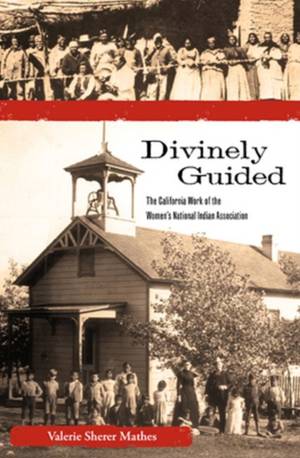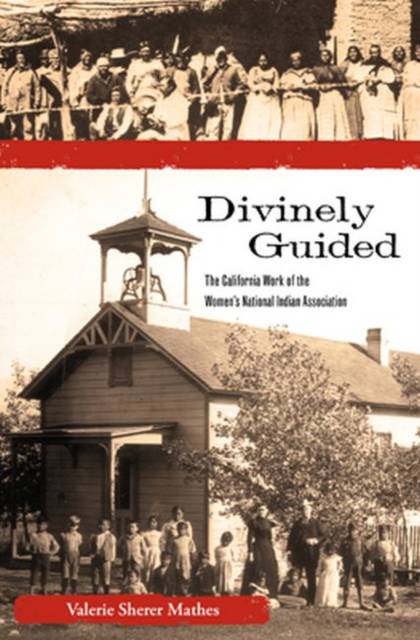
Bedankt voor het vertrouwen het afgelopen jaar! Om jou te bedanken bieden we GRATIS verzending (in België) aan op alles gedurende de hele maand januari.
- Afhalen na 1 uur in een winkel met voorraad
- In januari gratis thuislevering in België
- Ruim aanbod met 7 miljoen producten
Bedankt voor het vertrouwen het afgelopen jaar! Om jou te bedanken bieden we GRATIS verzending (in België) aan op alles gedurende de hele maand januari.
- Afhalen na 1 uur in een winkel met voorraad
- In januari gratis thuislevering in België
- Ruim aanbod met 7 miljoen producten
Zoeken
Divinely Guided
The California Work of the Women's National Indian Association
Valerie Sherer Mathes
€ 55,45
+ 110 punten
Omschrijving
Founded in Philadelphia in 1879, the Women's National Indian Association devoted seventy years to working among Native women. Bucking society's narrow sense of women's appropriate sphere, WNIA members across the U.S. built Indian homes, missionary cottages, schools, and chapels; supported government teachers and field matrons; and funded physicians--all with a strong dose of Christianity. Though goals of forced assimilation were as unrealistic as they were unsuccessful, WNIA's contributions to the welfare of Native women were hardly insignificant, especially in California. In the north, they worked at the Round Valley and Hoopa Reservations and realized their most unusual undertaking--the funding of the Greenville Indian Industrial School. In the south they worked with the Native mission populations, where cultural similarities and greater proximity fostered unprecedented cooperation among WNIA workers. Amelia Stone Quinton, longtime WNIA president and editor of The Indian's Friend, provides a consistent narrative thread, as does Helen Hunt Jackson in the chapters on Southern California. Even after Jackson's death, her spiritual presence and the impact of her novel Ramona guided WNIA membership. Mathes's recovery of WNIA history, supported by a wealth of documentation, reveals much about an era's sense of sphere, service, and sisterhood. Also 04 Activeable in cloth, 978-0-89672-726-7, $65.00
Specificaties
Betrokkenen
- Auteur(s):
- Uitgeverij:
Inhoud
- Aantal bladzijden:
- 400
- Taal:
- Engels
- Reeks:
Eigenschappen
- Productcode (EAN):
- 9780896727458
- Verschijningsdatum:
- 15/04/2012
- Uitvoering:
- Paperback
- Formaat:
- Trade paperback (VS)
- Afmetingen:
- 155 mm x 234 mm
- Gewicht:
- 680 g

Alleen bij Standaard Boekhandel
+ 110 punten op je klantenkaart van Standaard Boekhandel
Beoordelingen
We publiceren alleen reviews die voldoen aan de voorwaarden voor reviews. Bekijk onze voorwaarden voor reviews.









